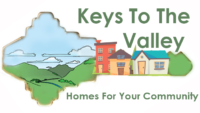From the National Low Income Housing Coalition, June 2019:
The National Low Income Housing Coalition (NLIHC) released its 2019 Out of Reach report today. The report concluded that a full-time worker needs to earn an hourly wage of $22.96 on average to afford a modest, two-bedroom rental home in the U.S. This Housing Wage for a two-bedroom home is $15.71 higher than the federal minimum wage of $7.25 and $5.39 higher than the national average hourly wage earned by renters of $17.57. In nine states and the District of Columbia, the two-bedroom Housing Wage is more than $25.00 per hour.
This year marks the 30th anniversary of the report, which documents the significant gap between renters’ wages and the cost of rental housing across the United States. Low wages, wage disparities, racial inequalities and a severe shortage of affordable and available rental homes continue to leave far too many people struggling to keep roofs over their heads.
The federal minimum wage has remained at $7.25 an hour without an increase since 2009, not keeping pace with the increasing cost of rental housing. In no state, even those where the minimum wage is set above the federal standard, can a minimum wage renter working a 40-hour work week afford a modest two-bedroom rental unit at the average fair market rent. On average nationally, a renter earning the federal minimum wage would need to work 127 hours per week to afford a two-bedroom rental home at the fair market rent and 103 hours per week to afford a one-bedroom rental home.
In most areas of the U.S., a family of four with poverty-level income earns no more than $25,750 and can afford a monthly rent of no more than $644. The national average fair market rent for a one-bedroom home is $970 per month and $1,194 for a two-bedroom home, far from affordable for a family in poverty.
The median-wage full-time worker in eight of the nation’s ten largest occupations do not earn enough to afford a modest one-bedroom rental home at fair market rent. People we rely on every day—retail salespersons, fast food workers, personal care aides, and home health aides—cannot afford to pay their rent without spending more than 30% of their income. These are some of the jobs projected to experience the greatest growth nationally over the next decade, but they pay less than the hourly wage necessary to afford a modest one-bedroom rental home.
“The 2019 Out of Reach report shows that in 99% of counties in the U.S. a full-time minimum-wage worker cannot afford a one-bedroom rental home at fair market rent,” said Diane Yentel, NLIHC president and CEO. “Our rental housing needs have worsened considerably over the past 30 years, leaving housing out of reach for millions of low-wage workers. But members of Congress are starting to take note: a number have introduced big, bold bills to address the nation’s affordable housing crisis. The topic of affordable housing is also becoming increasingly prevalent on the 2020 presidential campaign trails. We now have a tremendous opportunity to implement federal housing policy solutions to fund affordable housing programs at the scale necessary. We must use tools like Out of Reach to build the political will.”
“Affordable housing is a foundation for positive health outcomes, increased cognitive development, higher academic achievement, and greater opportunity for economic mobility,” said Andrew Aurand, NLIHC vice president for research. “Instead of reducing our nation’s investments in affordable housing, we need to make a bold and sustained commitment to ensure everyone has a safe, accessible, and affordable home. A sustained commitment to federal programs that improve housing affordability for the lowest-income renters in the U.S. will provide profound benefits to millions of people and their families, as well as to local communities.”
“Access to safe and affordable housing is a fundamental human right,” stated Representative Ayana Pressley (D-MA) in the preface of this year’s Out of Reach. “The displacement of families is a national public health crisis. As members of Congress, it is our responsibility to fight every day for those most vulnerable by putting forward bold solutions that ensure access to safe, affordable housing. The Out of Reach report outlines the solutions and changes we need to end homelessness and housing poverty once and for all.”

